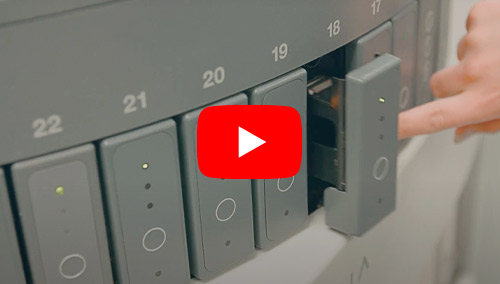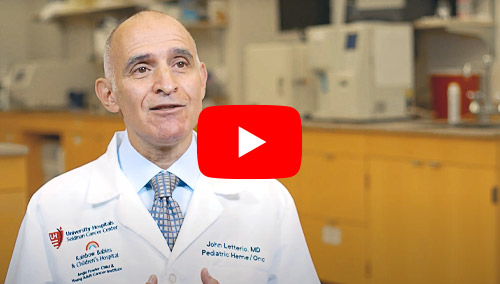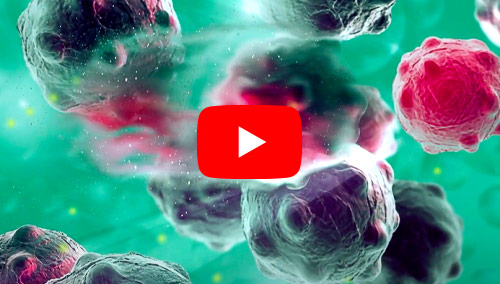Pediatric Immunotherapy
The pediatric cancer experts at UH Rainbow Babies & Children’s are on the leading edge of research and development of immunotherapy treatments, which use the body’s own immune system to fight cancer and other conditions in babies, children, adolescents and young adults.

Call to Schedule an Appointment Today
To make an appointment with one of our pediatric cancer experts, call 216-844-3345.What is Immunotherapy?
Also known as biological therapy, immunotherapy uses the body’s immune system to fight cancer. Because they originate and disguise in the body as normal cells, cancer cells often fail to be recognized as “foreign” by the immune system and are free to replicate out of control. Immunotherapies are designed to recognize and alert the immune system about these mutated and invasive cells so it can locate and destroy them. Immunotherapy may be an option for a growing number of cancers including leukemia, lymphoma, neuroblastoma, brain tumors, osteosarcoma and other forms of childhood cancers that are refractory or non-responsive to traditional treatments. It is often paired with other treatments and may work better for some than others.

Generating Cellular Therapies On-site at UH Seidman Cancer Center
Immunotherapy is the next frontier in cancer therapy. It uses the body’s own immune system to fight cancer. At University Hospitals Seidman Cancer Center, we are able to generate cellular therapies onsite, allowing us to get these cancer treatments to patients more quickly.
Why the HPV Vaccine is Important
The HPV Vaccine prevents about 30 percent of cancers in adults. John Letterio, MD, Division Chief, Pediatric Hematology and Oncology at University Hospitals Rainbow Babies & Children’s Hospitals explains how this vaccine is a form of immunotherapy will allow us to eradicate many HPV-related cancers in our lifetime.Benefits of Immunotherapy
Each year, more than 15,000 children and teens are diagnosed with cancer in the United States. Thanks to advancements in early diagnosis and treatment strategies, the overall survival rate stands at 80 percent today.
However, not all children respond to standard treatments such as chemotherapy, radiation and surgery, and late effects from these treatments can put them at risk for complications. In fact, the reality is that two out of every three survivors of childhood cancer develop at least one therapy-related complication which, in a quarter of patients, is severe or life-threatening.
Scientists have been studying cancer and other diseases for a long time and have learned that your own immune system may be the best defensive mechanism you have to fight off foreign invaders. Your body has the ability to protect you from illness and foreign substances that can harm you.
Uses of Immunotherapy
Scientists have found ways to use a child's immune system to help treat or prevent many health problems. Immunotherapy may be used to:
Conditions & Treatments
Immunotherapy shows promise in treating certain types of childhood cancers without the damaging, long-term side effects that can accompany more traditional treatments such as radiation and chemotherapy. Learn about the different types of immunotherapy and the cancers it is used to treat.
Innovative Care with Immunotherapy
The Center for Pediatric Immunotherapy at the Angie Fowler Adolescent & Young Adult Cancer Institute was established to leverage the power of immunotherapy, which is showing great promise in treating childhood cancers and reducing side effects. We are also researching ways to apply it to non-cancer conditions that are responsive to this type of therapy, including inflammatory and auto-immune diseases.
We are taking breakthrough research discoveries and speeding up development to bring new, life-extending treatments to our patients – quickly and efficiently.
Our Mission
- Expand access to promising immunotherapies for pediatric patients by establishing UH Rainbow immunotherapy research, innovation and clinical trials
- Demonstrate the safety and effectiveness of novel immunotherapies for pediatric cancer and blood disorders for a new standard of care with reduced side effects and better outcomes
- Leverage new knowledge about immunotherapies to expand treatments to other areas of pediatric disease, including allergy/immunology, neurology, autoimmune diseases and gastroenterology
CAR-T Cell, Natural Killer Cell & Other Leading-Edge Therapies, Delivered Quickly
The center’s laboratory, which generates CAR-T, NK cell and other cell-based and molecular-based therapies, is situated on-site in the Wolstein Research Building in the heart of Cleveland’s University Circle. The convenient location of the laboratory provides patients with access to the latest therapies and discoveries more quickly, when every minute counts.
To put this in perspective, UH Rainbow cell therapies can be manufactured and delivered in as few as eight days, compared to other commercially available cell-based therapies, which average 12 – 30 days from lab to bedside. And, with the on-site lab advantage, UH Rainbow physicians can also provide treatment to more patients than would otherwise be possible.
Immunotherapy Research
The physician-scientists at the UH Rainbow are at the forefront of research efforts to find, test and develop immunotherapy agents, which have unlimited potential and could, quite possibly, become the anti-cancer treatment of the future.
Your child’s health is important. Get expert care.
Offering in-person and virtual visits.
216-844-3345



